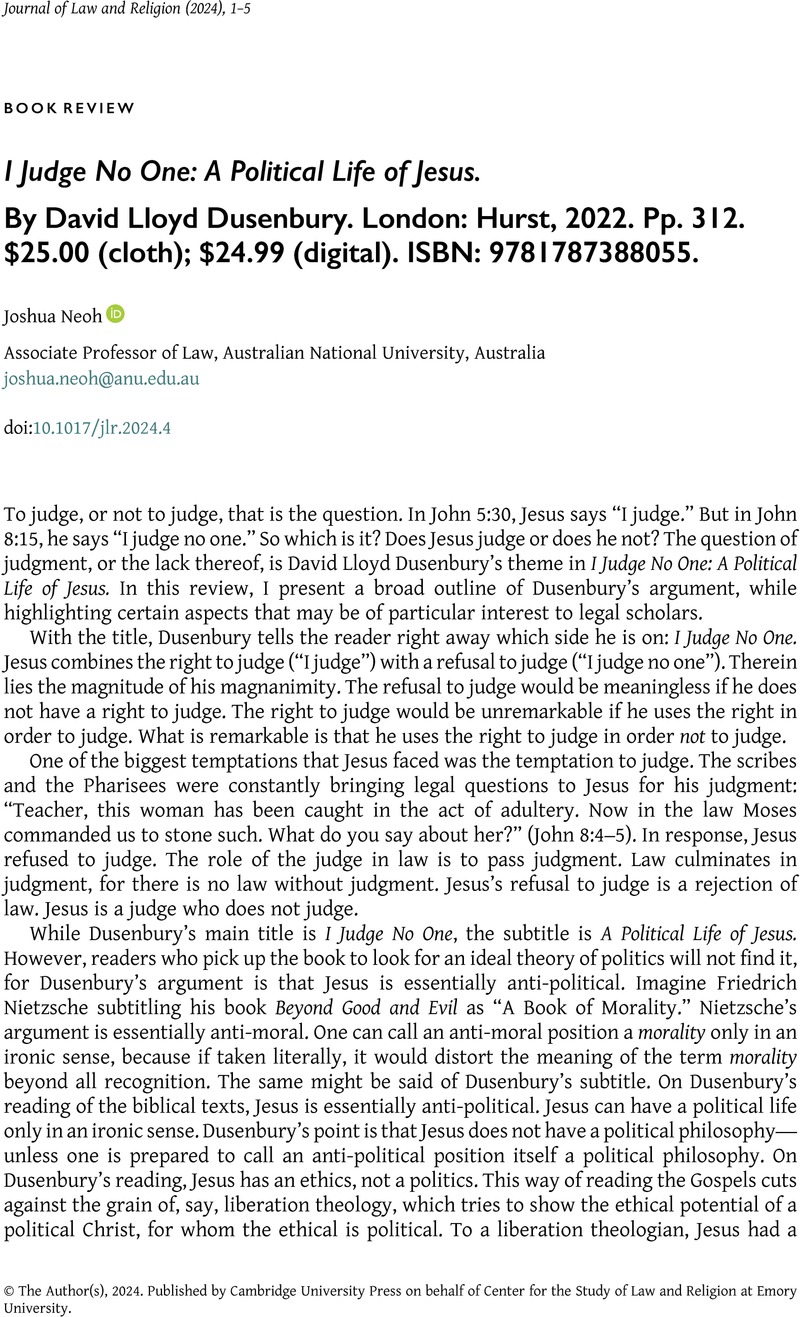No CrossRef data available.
Published online by Cambridge University Press: 18 March 2024

1 Fuller, Lon, The Morality of Law (New Haven: Yale University Press, 1964), 39–43 Google Scholar.
2 Blake, William, “The Everlasting Gospel,” in Blake: The Complete Poems, ed. Stevenson, W. H. (London: Routledge, 2014), 895–909 Google Scholar, at 900–01.
3 Kierkegaard, Søren, “Fear and Trembling” and “The Sickness unto Death,” trans. Lowrie, Walter (Princeton: Princeton University Press, 2013), 1–234, at 107–29Google Scholar.
4 Arendt, Hannah, The Human Condition (Chicago: University of Chicago Press, 1958)Google Scholar.
5 Waldron, Jeremy, “Arendt’s Constitutional Politics,” in The Cambridge Companion to Hannah Arendt, ed. Villa, Dana (Cambridge: Cambridge University Press, 2000), 201–19CrossRefGoogle Scholar.